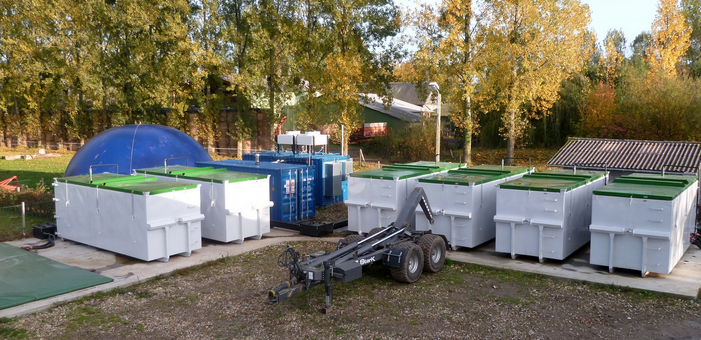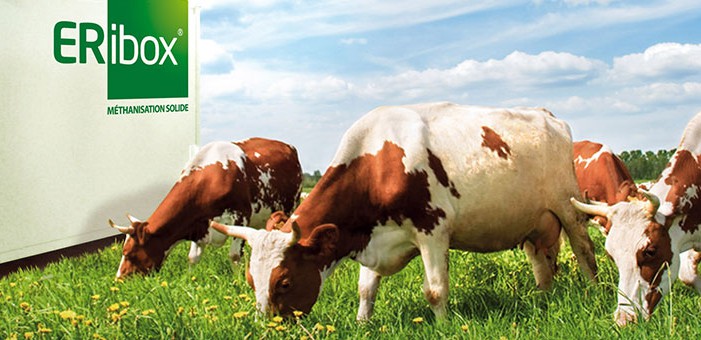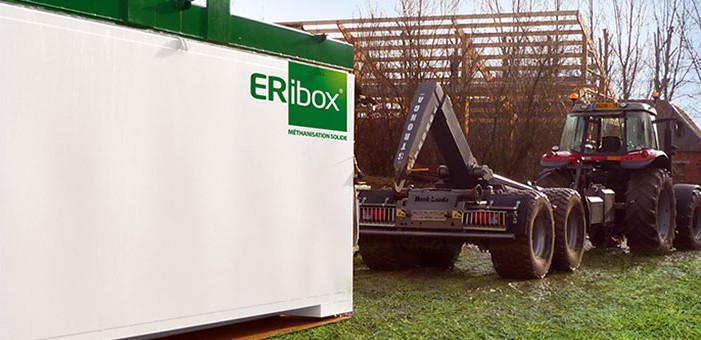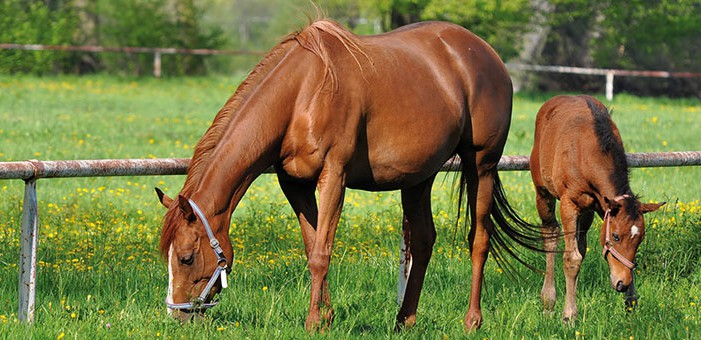Short History of ERigene
ERigene was created in 2009 to develop renewable energy sources.
ERigene designs, develops and markets an innovative concept of “on-farm” solid-phase Anaerobic Digestion (AD) units, technically and economically closer to agricultural machinery than to energy plants.
Agriculture faces in a wide range of requirements (environmental, energy Performance Plan 2009-2013, public opinion on the environmental impact of farming…), all of which push to a (more) sustainable approach while finding a way to improve agronomic and economic performance, in short a more “environmentally intensive agriculture”.
Anaerobic Digestion has been designated as a path to the future. The agricultural world is challenged by public authorities to explore all means to enhance energy performance and compensate for the volatility Selling prices.
The work of ERigene, now reflected the ERibox system, as well as the continuation of the work and partnerships for the upgrading of biogas, is a major step forward for the emergence of an industrial sector of Agricultural AD, in Europe as well as a multitude of locations worldwide.
Our belief: Renewable Energies are an opportunity for agriculture
Olivier Lespinard, founder of ERigene, has been convinced for many years that the production of renewable energies represents a crucial opportunity for agriculture in France, with economic, agronomic, ecological and Important social key.
However, as of yet, the vast majority of farms owners do not have access to AD and biogas production: the size of their farms does not always allow direct transposition of solutions developed elsewhere in Europe for different technical and economic contexts, such as Germany, where Biogas Production is highly developed.
In addition, the more widespread process of liquid digestion is better suited for producers of liquid effluents.
To enable the development of a biogas sector, it was necessary to find a way to offer thousands of small -to-mid-size farms, from 50 to 150 Lu, who use straw beddings.
A simple idea… yet requiring a full-scale scientific, technological and industrial approach
In order to make Anaerobic Digestion available to any farm, it was necessary to develop an affordable equipment, easy to integrate with the operation and its daily functioning.
In a nutshell, we setout to design an easy-to-use, efficient, ergonomic, and industrial equipment, with low-cost production.
- Technologically, the solution must adapt to the specificities of the holdings (size, type of breeding, seasonality, types of inputs…),
- Ergonomically, it must be easy to use, without requiring additional human or technical means.
- Economically, the cost must be bearable for operation and reasonable pay-back time.
A network of local, technological, agronomic and industrial partners
From 2008, Olivier Lespinard lays the groundwork for a Research & Development project with partners such as the industrial process engineering team from the University of Technology of Compiègne, the Institut Polytechnique LaSalle Beauvais and the Chambre of Agriculture in Oise).
Very quickly, the project – called MEXA – receives support from Oseo/BPI-France and the region Picardie.
ERigene relies on local companies, particularly for production of the digesters and major components of its units.
For years, ERigene and its partners have alternated research and development in the laboratory and tests on pilot farms.
The objectives of the R&D program:
- Scientifically and technically determine the optimum conditions for the “solid phase” anaerobic digestion,
- Implement innovative, simple and robust technology that integrates with farm practices and equipment,
- Ensure the continued development of products and services
- And finally, set up the conditions of mass industrial production of units to allow their deployment on a large scale.
ERibox was born from this collective effort which enshrines the anaerobic digestion in agricultural practices, by favouring the optimization of the overall added value of the farm: the beginning of a real French agricultural anaerobic sector?





